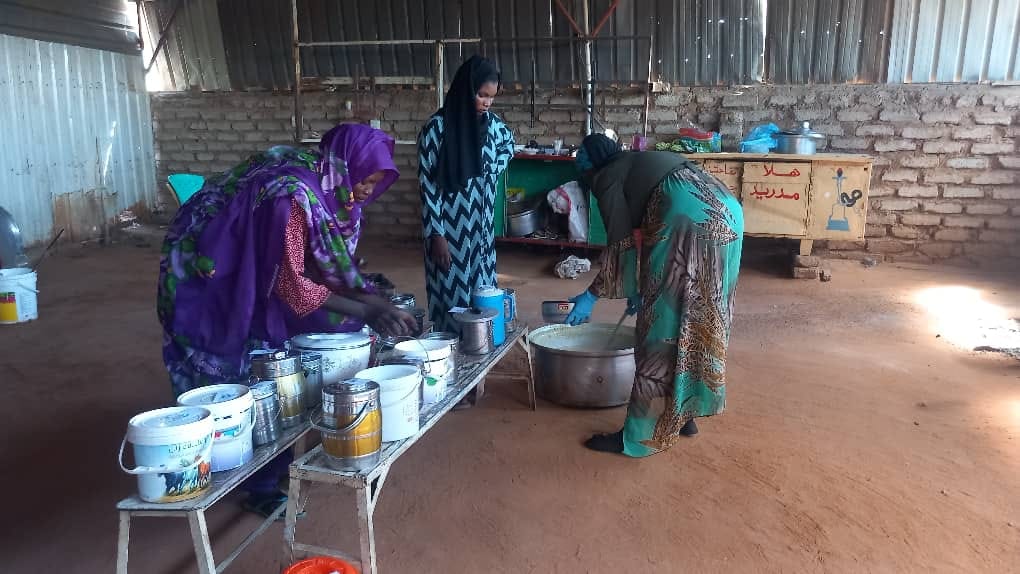
March 8: Sudanese Women Standing Tall Amid the Guns of War for Power and Resources
By Mohamed Badawi
As we mark March 8, International Women’s Day, our country, Sudan, remains trapped in the devastating war that erupted in April 2023 between the Sudanese Armed Forces (SAF) and the Rapid Support Forces (RSF)—a continuation of the political conflicts that have plagued Sudan since independence. Many of these conflicts ended in political agreements that ignored justice as a fundamental issue, much like the 2005 Comprehensive Peace Agreement between the Sudanese government and the Sudan People’s Liberation Movement. However, the persistent mismanagement of power and resources has continued to fuel successive armed conflicts—Darfur in 2003, the Blue Nile and Nuba Mountains wars since 2011, and most recently, the April 2023 war. This latest conflict was exacerbated by the absence of accountability, the role of paramilitary forces, economic interests, and attempts by Sudanese Islamists to regain power, pushing the war into a prolonged and violent phase.
Women: The Most Affected Yet the Most Resilient
It is an undeniable fact that women and children are the most vulnerable groups in armed conflicts. Whether through direct violations or collective punishment, women suffer disproportionately. The war has also sought to suppress any progress that empowers women to resist oppression, making them targets of crimes that violate dignity—crimes so severe they fall under the definition of war crimes and crimes against humanity.
In addition to these direct attacks, women face systemic oppression through repressive laws, such as Public Order Laws, which have long been used to curtail their freedoms and suppress political participation. Despite making up a significant percentage of Sudan’s population, women are sidelined from meaningful participation in governance. Instead, they are granted token representation, if any, in political parties and armed movements, despite their frontline role in grassroots struggles and even armed resistance.
The Militarization of Society and Its Impact on Women
Sudan’s history of military coups and armed conflicts has led to the increasing militarization of society. Women have borne the brunt of forced displacement, while children have been recruited as soldiers in cycles of war spanning 1955–1972 and 1983 to the present. Additionally, Sudan’s economic mismanagement, including its entry into international debt in 1979, compounded the crisis, making women suffer on multiple fronts—security, politics, and economy.
The April 2023 war is no different. The same structural failures, such as lack of policies and protection mechanisms, persist. However, this war has also introduced new economic burdens on women, driven by corruption, war financing, and the economic collapse that has forced women into precarious labor.
Women Bearing the Economic Burden of War
Unlike previous conflicts, the April 2023 war erupted in diverse geographic areas, forcing women to take on the responsibility of securing safe passage for their families from combat zones. They did so using their personal savings, often gold jewelry and financial reserves, which they managed to protect from looting and extortion. After reaching safer areas within Sudan or abroad, many women became the primary breadwinners, not only for their children but also for male family members. They engaged in street labor and other forms of precarious employment, facing unsafe working conditions in an environment dominated by multiple armed factions—where simply being in the wrong place at the wrong time can lead to physical and psychological abuse.
A Tribute to Sudanese Women’s Strength
On this March 8, while we celebrate women across the world, we must acknowledge that the April 2023 war has placed immense economic hardships on Sudanese women. Women have lost decades’ worth of savings, sacrificed their security, resources, and well-being, all in the name of protecting their families and communities in a war driven by power and resource struggles.
A salute to these resilient women—to their unwavering strength and sacrifices in the face of systematic impoverishment. They are the unsung protectors in a war that has cost Sudan more than just its resources—it has cost lives, dignity, and stability.

